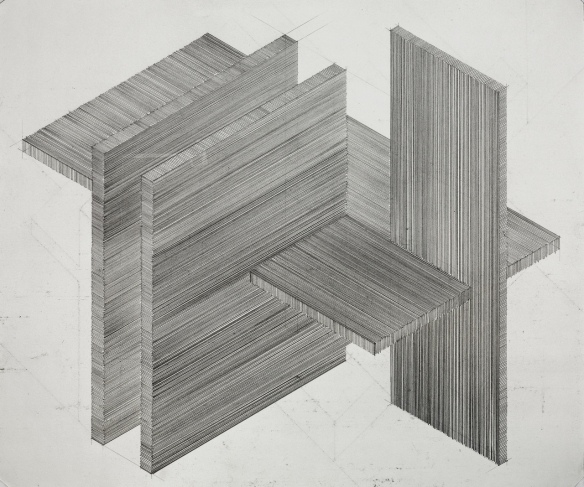rather than ‘quasi-dialectical’, Deleuzian dialectical…. 🙂 (Thinking of Williams’ guide to Difference and Repetition.)
Nice post of one of my favorite books. At the end, it feels helpful for me: instead of thinking of the ‘nos’ of nonart, nonphilosophical, nonscientific in terms of negation, it seems perhaps Deleuze is pushing on the need to get outside of disciplinary lines that establish direct relationships between the artist and the discipline, ie the admonished ‘I am one of you’ from AO, in which our activities as an artist/philosopher/scientist are determined by identifying with the discipline. It seems like when something ‘forces us to think’, we let go of rules, norms and conventions that guide the discipline and we respond, unmediated. This allows for difference in itself, rather than difference of representation.
 Gilles Deleuze and Félix Guattari’s What is Philosophy? is in many ways quite a departure from their previous joint-signed books. I say “joint-signed,” rather than “joint-authored” because François Dosse in Gilles Deleuze and Félix Guattari: Intersecting Lives (which I reviewed for H-Madness) makes it clear that the book “was manifestly written by Deleuze alone”; he included Guattari’s name “as a tribute to their exceptionally intense friendship” (456). But even considered within the lineage of Deleuze’s solo output, it is somewhat anomalous. If anything, it hearkens back to his seminal texts of the late 1960s, Difference and Repetition and Logic of Sense, not least because it is not dedicated to any particular individual (unlike his books on Foucault, Bacon, or Leibniz) or any particular genre (unlike his books on the cinema). It is, almost, pure philosophy.
Gilles Deleuze and Félix Guattari’s What is Philosophy? is in many ways quite a departure from their previous joint-signed books. I say “joint-signed,” rather than “joint-authored” because François Dosse in Gilles Deleuze and Félix Guattari: Intersecting Lives (which I reviewed for H-Madness) makes it clear that the book “was manifestly written by Deleuze alone”; he included Guattari’s name “as a tribute to their exceptionally intense friendship” (456). But even considered within the lineage of Deleuze’s solo output, it is somewhat anomalous. If anything, it hearkens back to his seminal texts of the late 1960s, Difference and Repetition and Logic of Sense, not least because it is not dedicated to any particular individual (unlike his books on Foucault, Bacon, or Leibniz) or any particular genre (unlike his books on the cinema). It is, almost, pure philosophy.
I say that it is “almost” pure philosophy because, first, as the title…
View original post 897 more words







 In a very nice response to my
In a very nice response to my